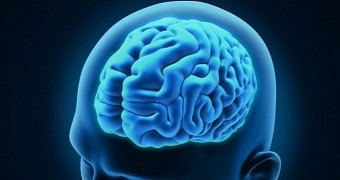Evidence obtained while carrying out a series of experiments in laboratory conditions indicates that marijuana could be used to slow, maybe even halt the progression of Alzheimer's.
These experiments and their outcome are detailed in a paper in the Journal of Alzheimer's Disease. The study is authored by a team of University of South Florida researchers, Science Daily informs.
These brainiacs explain that the compound that might serve as a treatment for said disease is known as delta-9-tetrahydrocannabinol (THC, for short). This compound is the principal psychoactive constituent of marijuana.
As part of their investigation into how THC might influence brain health in the case of Alzheimer's disease patients, the researchers exposed laboratory-grown cells to this compound, and closely monitored their response to it.
It was thus discovered that, when administered in low doses, THC can curb the production of a protein dubbed amyloid beta. This protein is found in most aging brains, and previous studies have shown that Alzheimer's patients have a bit too much of it.
What's more, it appears that THC can help promote health brain activity by boosting the cells' ability to supply energy and transmit signals. Consequently, it might be possible to use this compound to put a leash on Alzheimer's-related symptoms.
“THC is known to be a potent antioxidant with neuroprotective properties, but this is the first report that the compound directly affects Alzheimer's pathology by decreasing amyloid beta levels, inhibiting its aggregation, and enhancing mitochondrial function,” says study lead author Chuanhai Cao.
“Decreased levels of amyloid beta means less aggregation, which may protect against the progression of Alzheimer's disease. Since THC is a natural and relatively safe amyloid inhibitor, THC or its analogs may help us develop an effective treatment in the future,” the University of South Florida researcher adds.
Some might want to argue that using marijuana to treat Alzheimer's disease might not be such a good idea, seeing how this weed has been linked to THC toxicity and memory impairment. However, Chuanhai Cao and fellow researchers maintain that there is no need to worry about such side effects.
This is because, as they discovered while experimenting on lab-grown cells, THC can benefit brain health even when administered in low doses. What's more, it's important to note that one can always opt for THC-related compounds that are safer to use.
“This study indicates that THC and THC-related compounds may be of therapeutic value in Alzheimer's disease. Are we advocating that people use illicit drugs to prevent the disease? No,” study co-author and MD/PhD candidate Neel Nabar wishes to stress.
“It's important to keep in mind that just because a drug may be effective doesn't mean it can be safely used by anyone. However, these findings may lead to the development of related compounds that are safe, legal, and useful in the treatment of Alzheimer's disease,” the specialist goes on to comment on the importance of this research.

 14 DAY TRIAL //
14 DAY TRIAL //